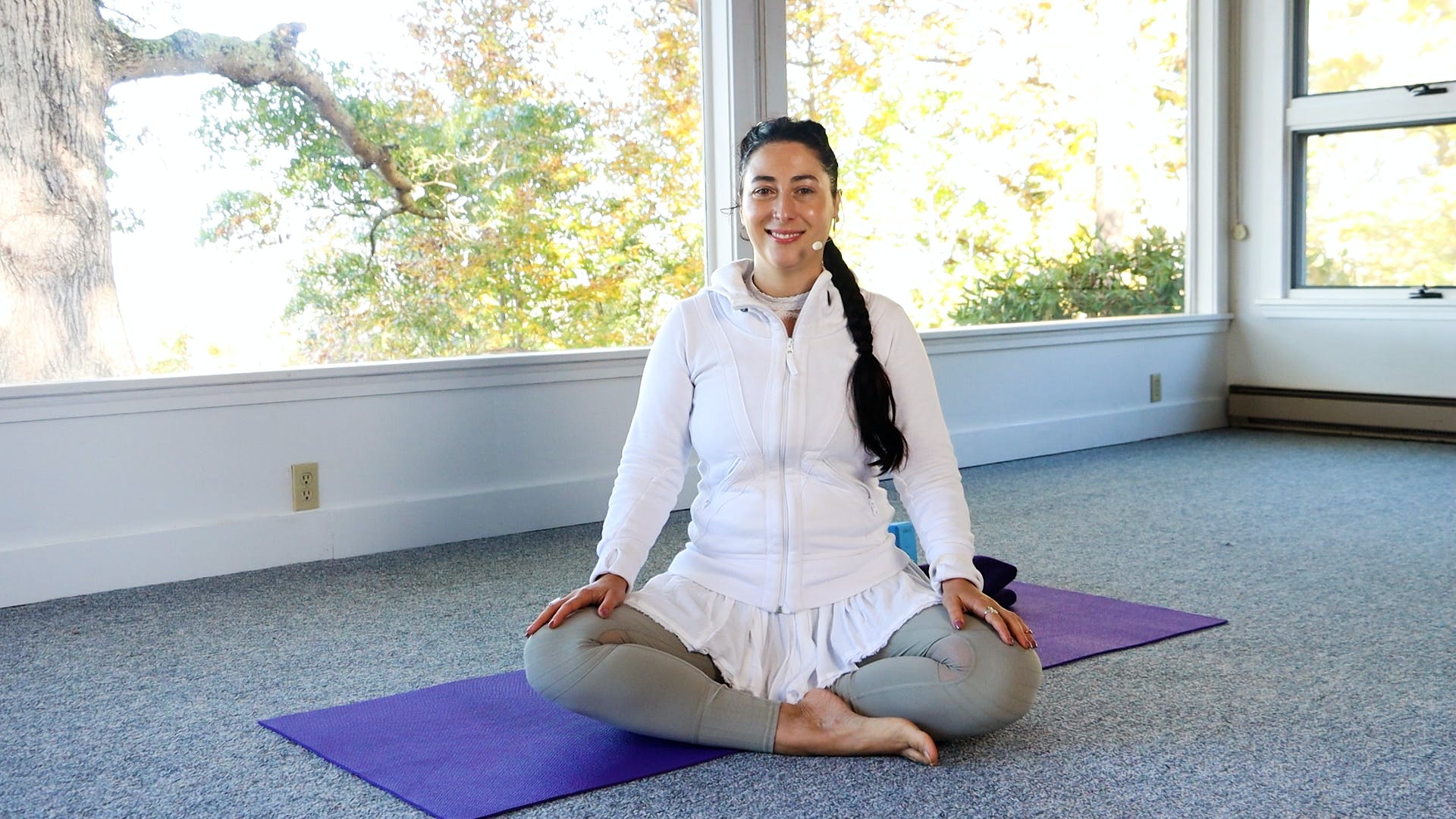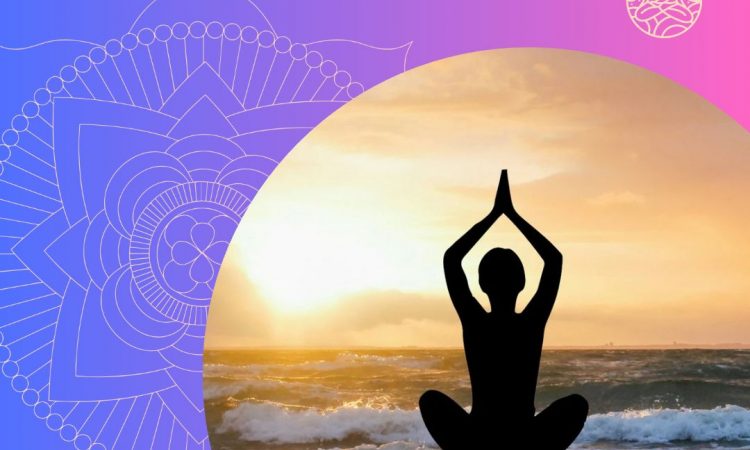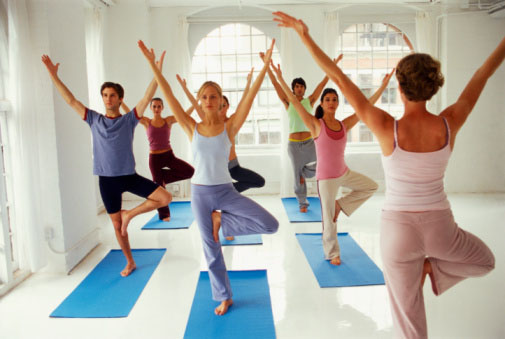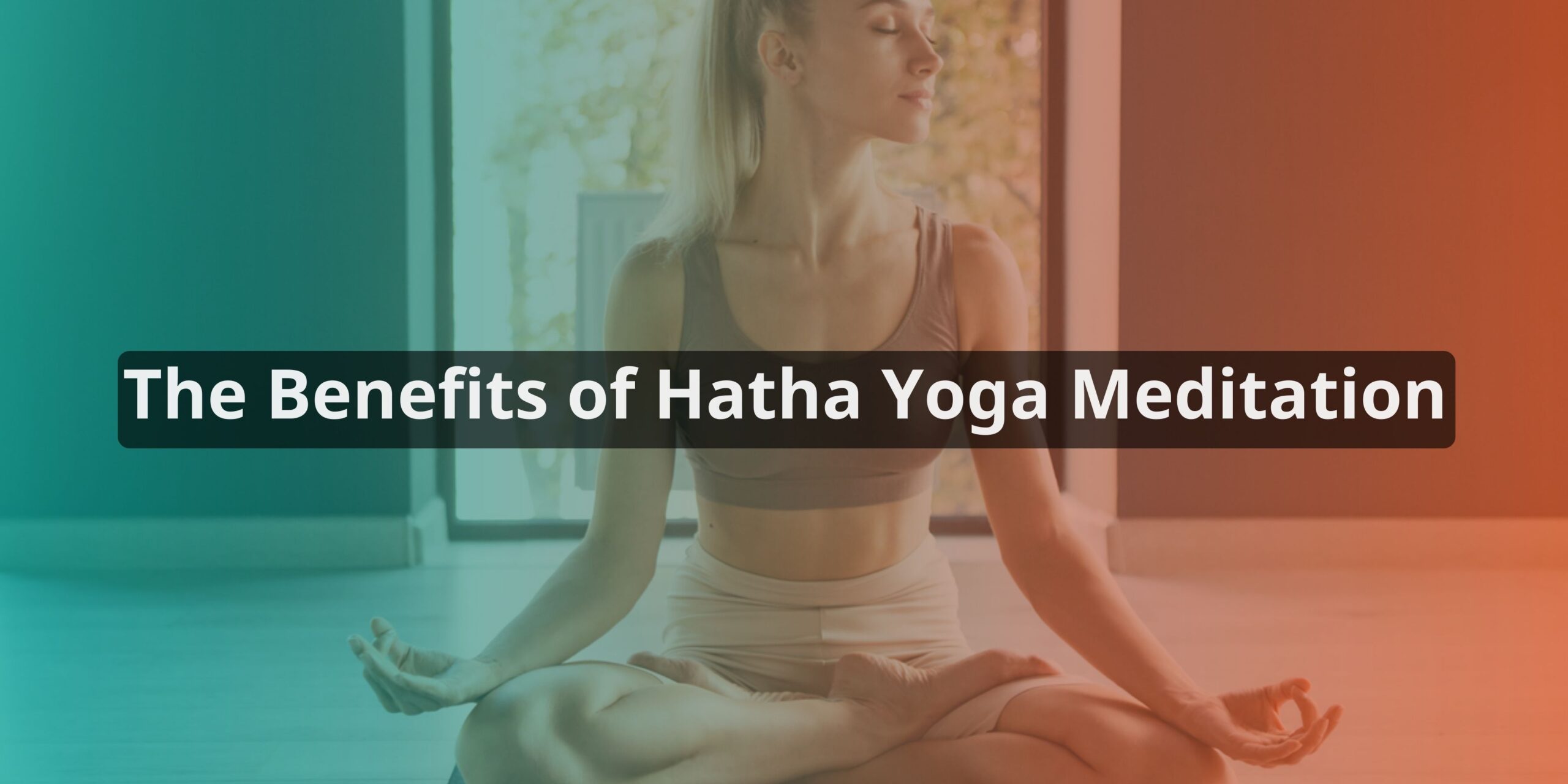Hatha yoga meditation is a powerful practice that can provide profound mental” physical, and spiritual benefits. In this in-depth guide, we will explore what hatha yoga meditation is, how it differs from other types of meditation, and outline some of the many benefits this practice offers.
What is Hatha Yoga Meditation?

Hatha yoga is one of the branches of yoga that emphasizes physical postures and breathing techniques to prepare the body and mind for meditation. The word “hatha” comes from the Sanskrit terms “ha” meaning “sun” and “tha” meaning “moon.” In hatha yoga, the sun represents the heating, stimulating qualities, while the moon represents the cooling, calming qualities.
Hatha yoga uses physical postures (asanas), breathing exercises (pranayama), and meditation techniques to balance and align these complementary energies within the body and mind. The physical postures open, relax, and purify the body. Controlled breathing calms and focuses the mind, while meditation trains awareness and induces deep states of relaxation and inner stillness.
Unlike other forms of meditation that primarily emphasize mental techniques, hatha yoga uses the body as the gateway to meditation. Through sustained practice of the postures and breathing exercises, the body becomes strong, flexible, and relaxed. This prepares the practitioner for prolonged meditation by steadying the body and focusing the mind.
Benefits of Hatha Yoga Meditation

Hatha yoga meditation offers a wide range of mental, physical, and spiritual benefits with regular practice over time. Here are some of the main benefits:
Physical Benefits
- Improved flexibility, strength, balance, and stamina
- Increased energy levels and relief from fatigue
- Enhanced circulation and cardiovascular health
- Weight loss and metabolism boost
- Improved posture and spine health
- Reduced pain and increased mobility for those with injuries or arthritis
- Better sleep quality
The physical postures progressively stretch and strengthen all parts of the body while the controlled breathing massages the internal organs and oxygenates the blood. This brings improved health, vitality, and resilience to the physical body.
Mental Emotional Benefits
- Reduced stress and anxiety
- Emotional balance and stability
- Sharper focus and concentration
- Heightened self-awareness and intuition
- Relief from depression
- Development of discipline and mental fortitude
- Boosts in mood and self-esteem
The meditation techniques calm and center the mind while inducing deep states of relaxation. This allows mental chatter and anxious thinking to quiet down, bringing an inner sense of peace and emotional stability. The enhanced mindfulness also improves focus and awareness.
Spiritual Benefits
- Deeper understanding of oneself
- Inner wisdom, insight, and intuition
- Compassion, empathy, and connection with others
- Sense of purpose and meaning in life
- Feeling part of something greater than oneself
The sustained centering of the mind during meditation enables profound states of introspection. This allows for gradual opening to understand one’s true nature beneath the surface identities and realization of fundamental interconnectedness with all aspects of life.
Hatha Yoga vs Other Forms of Meditation
Hatha yoga meditation differs from other common forms of meditation:
Mindfulness Meditation focuses on cultivating nonjudgmental awareness of thoughts, emotions, and sensations in the present moment. It does not necessarily incorporate physical postures or breathing exercises.
Transcendental Meditation involves the use of silent mantras to induce a deep, tranquil state of restful alertness. It does not emphasize physical practices.
Guided Meditation relies on an outside guide providing verbal cues to visualize or cultivate certain mental states, rather than internal focus.
Zen Meditation aims at inner insight into the nature of things through mindful observation of the breath and body. Postures may be used but are not the main focus.
Loving-Kindness Meditation concentrates on cultivating unconditional love and compassion for oneself and others.
The physical yoga postures and breathing techniques are the unique elements of hatha yoga meditation that ready the body and mind for sustained inner awareness and introspection. The progressive mastery of the body is seen as foundational to mastery of the mind and deeper spiritual states in this traditional practice.
Beginning a Hatha Yoga Meditation Practice

Here are some tips for those interested in starting a hatha yoga meditation practice:
- Take an introductory hatha yoga class to learn proper posture, alignment, breathing, and sequencing under an experienced teacher’s guidance. Proper form prevents injury.
- Start with simpler poses and breathing exercises, then gradually increase hold times and complexity. Don’t strain or force the body. Stay relaxed and focused.
- Practice daily mindfulness throughout the day’s activities. Carry the mindful presence cultivated in meditation into everyday life.
- Set up a clean, quiet space in your home dedicated to daily hatha yoga and meditation practice. This anchors the practice.
- Be patient and persistent. The benefits accumulate over time through sustained, daily practice. Let go of expectations and enjoy the journey.
- Keep a journal to track insights, challenges, and progress. This helps maintain discipline and motivation.
- Make it social by practicing with a friend or joining a class. Community support inspires consistency.
- Read books by experienced teachers to deepen knowledge and understanding of the ancient practice.
With regular practice and patience, hatha yoga meditation unfolds incredible transformative powers that profoundly benefit body, mind, and spirit. Enjoy the journey!
FAQs About Hatha Yoga Meditation
Are there specific meditation postures or poses in Hatha yoga meditation?
Hatha yoga meditation often begins with a comfortable seated posture, such as Sukhasana or Padmasana. However, specific postures may vary based on the practitioner’s needs and flexibility.
What role does breath control (pranayama) play in Hatha yoga meditation?
Pranayama is vital in Hatha yoga meditation. It regulates breath, calms the mind, and facilitates a meditative state. Techniques like Ujjayi breath or Nadi Shodhana help focus and center the practitioner.
How does Hatha yoga meditation contribute to mental clarity and emotional well-being?
Hatha yoga meditation enhances mental clarity by calming the mind’s fluctuations. It cultivates emotional well-being through self-awareness, enabling practitioners to manage stress and emotions effectively.
Are there variations of meditation within Hatha yoga to suit different preferences?
Yes, Hatha yoga offers various meditation techniques, including mindfulness, mantra meditation, and chakra meditation. Practitioners can choose the one that resonates with their preferences and goals.
Can Hatha yoga meditation help with stress reduction and relaxation?
Absolutely, Hatha yoga meditation is a powerful tool for stress reduction and relaxation. It promotes relaxation through controlled breathing and mindfulness, leading to a calmer, more peaceful state of being.
Can you recommend resources or instructors specializing in Hatha yoga meditation techniques?
For Hatha yoga meditation, consider online platforms like Yoga Alliance, Yoga Journal, or local yoga studios that offer classes led by experienced instructors. Books by renowned authors like B.K.S. Iyengar and Swami Sivananda also provide valuable insights.

